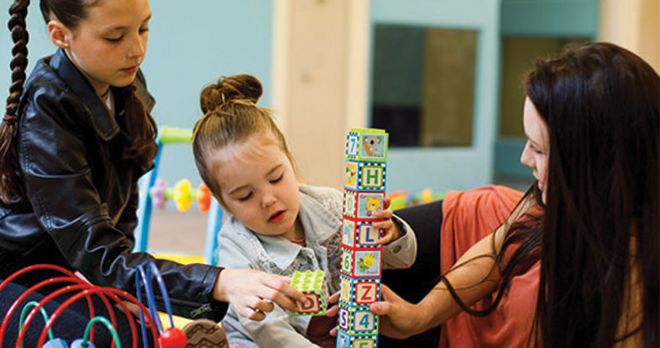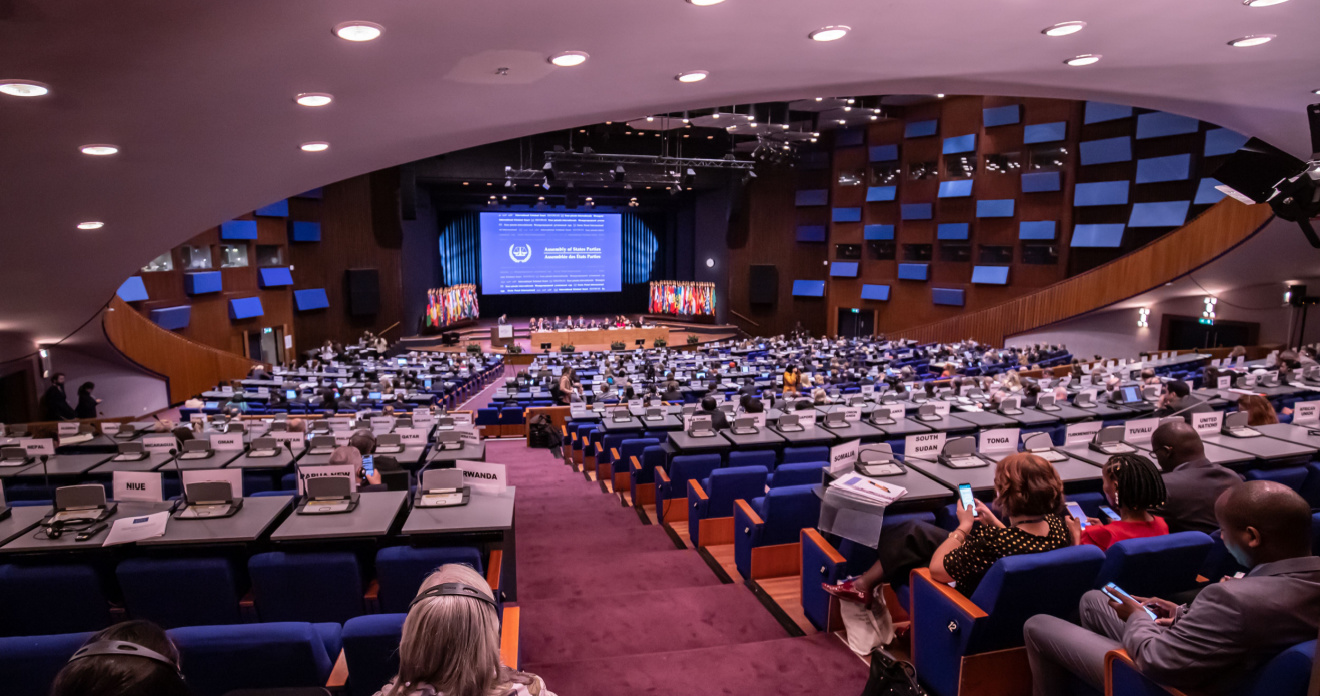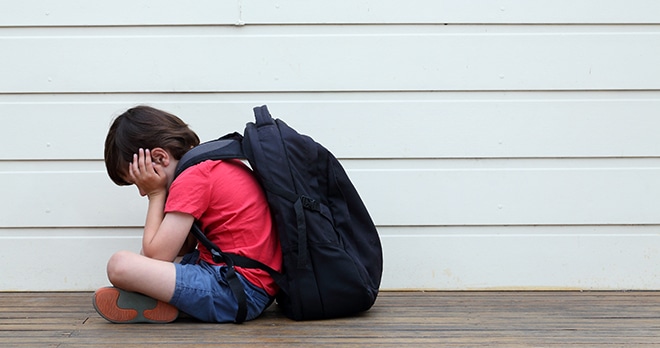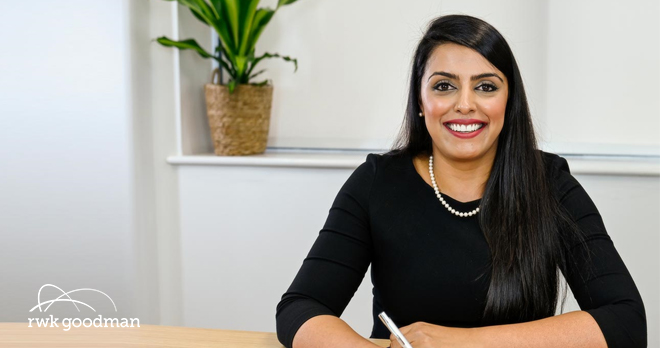Why it’s time to think outside the box in family law | Legal Thinking Podcast
You can also listen to our podcast on your podcast platform of choice - find it here >
As some of you may have noticed if you have been following us on social media, we are talking a lot about the family court system, separation, divorce, mediation, arbitration all this kind of thing and the need to think outside the box sometimes with some of the pressures that are on the system at the moment.
So, continuing with that theme in today’s episode we speak to Nick Marston and Jayne Martins.
Nick was a barrister in Bristol for 30 years and then in 2005 became a Circuit Judge specialising in family work in Hampshire and then Bristol and he retired in 2020 and he is now an arbitrator with St John’s Chambers in Bristol.
Jayne Martins is a solicitor and partner in the family team at RWK Goodman as well as a mediator who has been practicing since 2008.
In this episode we discuss the differences between mediation and arbitration. We discuss if no fault divorces have any bearings on the pressures currently being put on the court system and we also talk about the effect that the cost of living crisis is also having on the family courts.
And if you want to read around the subject before listening to the podcast or after you know, you do you, just make sure to go to rwkgoodman.com/outsidethebox.
So I will start off with a question for you Jayne if that is okay? Can you talk a little bit about some of the stresses that are on the family courts and the system at the moment?
Jayne Martins: Yes so there has been a backlog with the courts for some time. I mean it was already pre-Covid getting pretty clogged up but with Covid hitting it has just exacerbated the problem so court dates are often being pushed back. Just accessing the court itself is taking some time. We have transitioned onto a new online portal which as with any new online system has its problems and has its downfalls so there are some delays that are happening now in the court system. Everyone is working incredibly hard and there is no lack of desire to want to be able to provide that service but unfortunately there has been a perfect storm with cuts to the funding, Covid hitting and people not getting back into the buildings themselves which has really led to a bit of a backlog.
And what is your perspective on this Nick. Do you view it the same way?
Nick Marston: Well yes I think Jayne is quite right even before Covid there was a huge backlog and of course the sort of work, the children work, that I was doing was dominated then and even more so by public core work, care proceedings that sort of thing and I think all of those backlogs have got much worse so that private law children work which is the other area that arbitration for instance is allowed to deal with there is a huge amount of work which is just not getting processed at the moment by the court. And again, I emphasise that it is nobody’s fault. It is certainly not the fault of the judges or the practitioners if you turn up at court and you look at the lists some days you are amazed I mean, I was in court speaking to a couple of people the other day and one judge had 24 cases on his list.
Wow. So a few people have suggested mediation and arbitration being a way of getting us out of this mess but Nick I thought our recent report outside the box you expressed some concern about this. Do you want to explain a little bit more?
Nick Marston: I think, I view children mediation and arbitration as a really vital tool in the toolkit for anybody dealing with cases both from a philosophical point of view because I think it is easier, better more user friendly I don’t know how you want to characterise it than the court system because by the time you have got to the court system you know the mind fields are laid out and the machine guns are planted on both sides because it is a contest. No matter how we try to pretend it isn’t, and in mediation of course that is not the case and even in arbitration the impetus is towards settlement, towards taking the pain away, towards not litigating the minor things and making it a much more user-friendly experience. Tailoring it to the clients as well. I think the only problem there is with this and of course it is a service which requires the clients to fund it, there is no public funding for it as there is in most family work and so there is a slight problem with a possibility of a two-tier new system in effect.
And Jayne, do you agree with Nick’s analysis here? Is mediation and arbitration the way that it is going to go?
Jayne Martins: I do agree with Nick. I think it is really helpful to have these as additional tools. We have got mediation that can work in family situations and arbitration as well which should also be used and it is possibly underused at the moment but mediation is very helpful and very successful but it is voluntary and it needs to continue to be voluntary because it is very, you are trying to encourage two people that are in conflict to work together to find an outcome and it depends on the level of conflict that is involved as to whether that is going to be successful so it is not going to work in every case where there is domestic violence for example or where there are significant mental health issues. Mediation is not going to be the answer and arbitration possibly could but would have its own difficulties and I think there is a real problem about it being funded by the public. They are going to have to pay for these resources and pay for these services, so that needs to be taken into account and can cause some problems and it is why the court system is still very much needed and a service that is providing a service to its users, so these should very much be looked at as an addition rather than as instead of. But absolutely the use of mediation and arbitration is really key to sorting out a lot of the cases that are now clogging up the courts.
Nick Marston: And if you think of it as a road down which each family travels after the breakup: sometimes they don’t need to travel very far because they agree with each other, the parents, over children and over money. Sometimes they have to travel a whole distance to the court. But all of these other things like mediation and arbitration are turnings in the roadway which give them an opportunity to consider the case and to come to an end of the case before you reach that last stop: the courts.
This is an open question, and I am not trying to drive you down any route and you can feel free to disagree with me, but are there any practical problems with arbitration and mediation as a solution to take the burden off the courts. So for example is there enough arbitrators and mediators and similarly is there a concern that as more people turn to this method of resolution that there will be even less kind of public funding for the courts if it looks like the tide is turning our professional and mediation? I realise it is a big question, but Nick could we get your thoughts on that?
Nick Marston: Yes it is a big question!
The financial circumstances of the country are such that the Government is looking to save money and we all understand that. But if it seizes on mediation and arbitration as a reason for cutting down the money and funding able for the courts and available for judges, available for the sheer running of the court as well then that is a really, really bad idea because that situation will just make it worse.
This isn’t instead of. It is as well as, and it gives the right- it gives you a full spectrum of remedies to deal with all different sorts of cases, different sorts of personalities that are involved and the different sort of problems.
Jayne is there anything else you would like to add on that point?
Jayne Martins: I mean, I agree I think there are quite a few mediators- they changed the system quite a few years ago where mediators had to be accredited which was actually the right thing to do because it is a very particular kind of role that a mediator undertakes and it is important that they have appropriate qualifications to be able to undertake that task, so it became a lot more onerous for people to become mediators so there are less of them around. But I think there are probably enough to be able to be able to support that and it is kind of a self-fulfilling prophecy if you have a bigger demand for people wanting to attend mediation then more people will train and qualify as mediators. Arbitrators, I doubt there probably are enough actually if there was a surge in demand. I am not sure how readily-
Nick Marston: I think mediation is about ten to fifteen years in advance of arbitration at the moment. It is much more bedded in, isn’t it Jayne?
Jayne Martins: It is, absolutely, and it has been around for a very long time so there are people that have been doing mediation for years/decades but less so for arbitration which I think has meant there have been less cases and then less people training to become one. So-
Nick Marston: And to be fair it is only since the mid noughties that we have been able to use arbitration in family cases at all.
Jayne Martins: Yes, absolutely.
If we could just take a step back a bit – sorry, we probably should have explained this a little bit earlier on, but if you just want to explain what mediation and arbitration are and what the differences are between the two of them?
Nick Marston: Do you want to do mediation Jayne and I will do arbitration?
Jayne Martins: Great. Yes. So mediation is a service for families that are separating, usually, and it enables people to come together with an independent mediator who has not met either of them outside of the process and through discussions with the mediator they work towards reaching their own outcome for their own set of issues and that is through a series of meetings directly with a mediator.
It is voluntary so nobody is forced to do it and it is voluntary for the mediator as well so the mediator has to identify that the case is suitable for mediation, but the mediator who remains impartial throughout and is not there to judge either of them will help them identify what the issues might be and look at what the solutions and what the options are with them so that they are informed and able to make their own decisions.
Nick Marston: Yes so the key difference in arbitration is that they are not able to make a decision because they both have well usually perfectly sensible reasonable arguments put forward and in those circumstances they can’t agree but they jointly appoint somebody to make the decision for them and that is what an arbitrator is. He cuts the gordian knot and says you are right, you are wrong, or whatever it happens to be, and so it is much more of a dispute process whereas in mediation it is the parties bringing it to an end themselves. So having said that because it is a tailor made process for that particular case it is much more user friendly in my view than just going into the one-size-fits-all court situation.
Thank you very much. So back to the questions. Jayne I will stick with you for a second. Does no fault divorce have any bearing here in terms of the stress that has been put on the court system?
Jayne Martins: I don’t think it does. Well, I say that; so, no fault divorce has come in from April this year and it is a really key and positive change to the divorce law in that right from the get go when people separate they are not being forced into a position to assign blame to either one of them when looking to separate in divorce which can take the heat out of things when you are having that initial discussion with your client. We don’t need to know why people are separating or why people are divorcing. They are just allowed to separate and divorce on the basis of the marriage irretrievably breaking down and that is really the end of that discussion. So it is really useful and I think it takes the stress out of that element of the separation but along with that the process has changed and it is now a far longer process because it is felt that it was sort of public policy to have a cooling off period built into that so it is now at least six to seven months before you are going to get a final order for within the divorce and for people that want to resolve their finances and issues very quickly that can add a bit of delay but that doesn’t really impact the court process or how people are accessing the court so I think on the whole actually it is a really positive change.
And Nick what are your predictions for the future in terms of the stress on the courts and mediation and arbitration? So especially as the cost of living crisis is really beginning to bite how do you see things going?
Nick Marston: Well I am so old that I have been a lawyer through two recessions and both of them, recession, financial pressures in particular, and all the other sort of pressures that come with that leads to the breakdown of more relationships. So I think sadly the cost of living crisis will just make things worse because living it is more difficult and living as a couple and living as a family is more difficult.
Financial worries are corrosive and they lead to breakdowns of relationships and in traumatic circumstances and a lot of the time a relationship separates and the parties recognise it has just run out of steam and in those circumstances mediation works very well. Sometimes the parties can even agree without mediation. But where you have a traumatic breakdown it is much more difficult for mediation to succeed and I see arbitration and it is a situation where the parties have both got strong views they need them decided but they need them decided if possible with keeping the lid on.
What we do not want is the sort of disputes that we are seeing in the courts at the moment where it starts off as an argument about where you are going to pick up the kids on a Saturday morning for contact and ends up with an argument about absolutely everything, and unfortunately that happens where these cases come to court they just a lot of the time they get worse because they are being decided in an adversarial atmosphere. Even though the lawyers, the judges, everybody within the courts, are trying to talk people down, by the very nature of a court dispute it becomes more traumatic. So, number one, I think that whilst we have more poverty, more financial need, more financial worry it will lead to more pressure on relationships. More pressure on relationships will lead to more pressure on the ways of bringing relationships to and end which includes the court but if we have mediation and arbitration as well at least there is some other option to go to.
You mentioned there about kind of argument over child arrangements, and for couples who are doing that is family court the only option?
Nick Marston: Family court, mediation, arbitration, family court.
There are certain sorts of other cases that you can’t mediate domestic violence for instance. Then there are other cases where you are not allowed to arbitrate either and those are cases where there are issues of child harm, significant harm to the child. The arbitrator is not allowed to deal with those. But there are a lot of cases where the parties just disagree about how much time they should each be spending with the kids, they disagree about where the children should live, where they should go to school, whether they should live in Cardiff, or whether they should be allowed to move to Birmingham. All that sort of thing and that is the sort of thing where if mediation can’t sort it out arbitration can and I think it is a good arm, good weapon in the armoury to do that.
And finally, I think Nick you have basically answered this but I will go over to Jayne for this question. We touch upon the issue of domestic abuse in our report Outside the Box. Jayne is it difficult to set up this kind of relationship breakdown outside of the family court?
Jayne Martins: I think it is difficult, but not impossible. I think often in situations where you have domestic abuse usually the relationship has broken down and the parties have separated and living separately and apart and if that is the case it is still possible to mediate because you have removed the stress factor that was putting them in that relationship which was the source of the domestic violence but that is not to say in all cases it is suitable to have mediation where there is domestic violence but it is not an absolute bar as long as there were safety measures in place and both parties felt that they were safe and able to remain safe both before, during and after the process. But it is one of the factors that mediators have to take into account and it may mean that where there has been domestic violence particularly if they are still living in the same house that it is not suitable because you could potentially be inflaming situations and then leaving them to go home together in a hostile situation. So it is a factor that needs to be taken into account but it is not an absolute bar.
Jayne and Nick thank you very much for your time.
Complexities in family law - thinking outside the box
Is it time that we all started thinking outside the box?
How can families in need of support continue to seek resolutions when so much is changing around them? Is it time that we all started thinking outside the box?
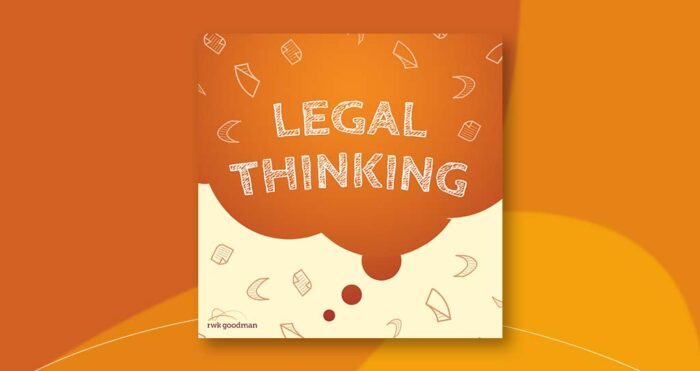
Subscribe to Legal Thinking
Want to hear more from our podcast?
Find out where you can subscribe and check our our back catalogue right here on our website.



